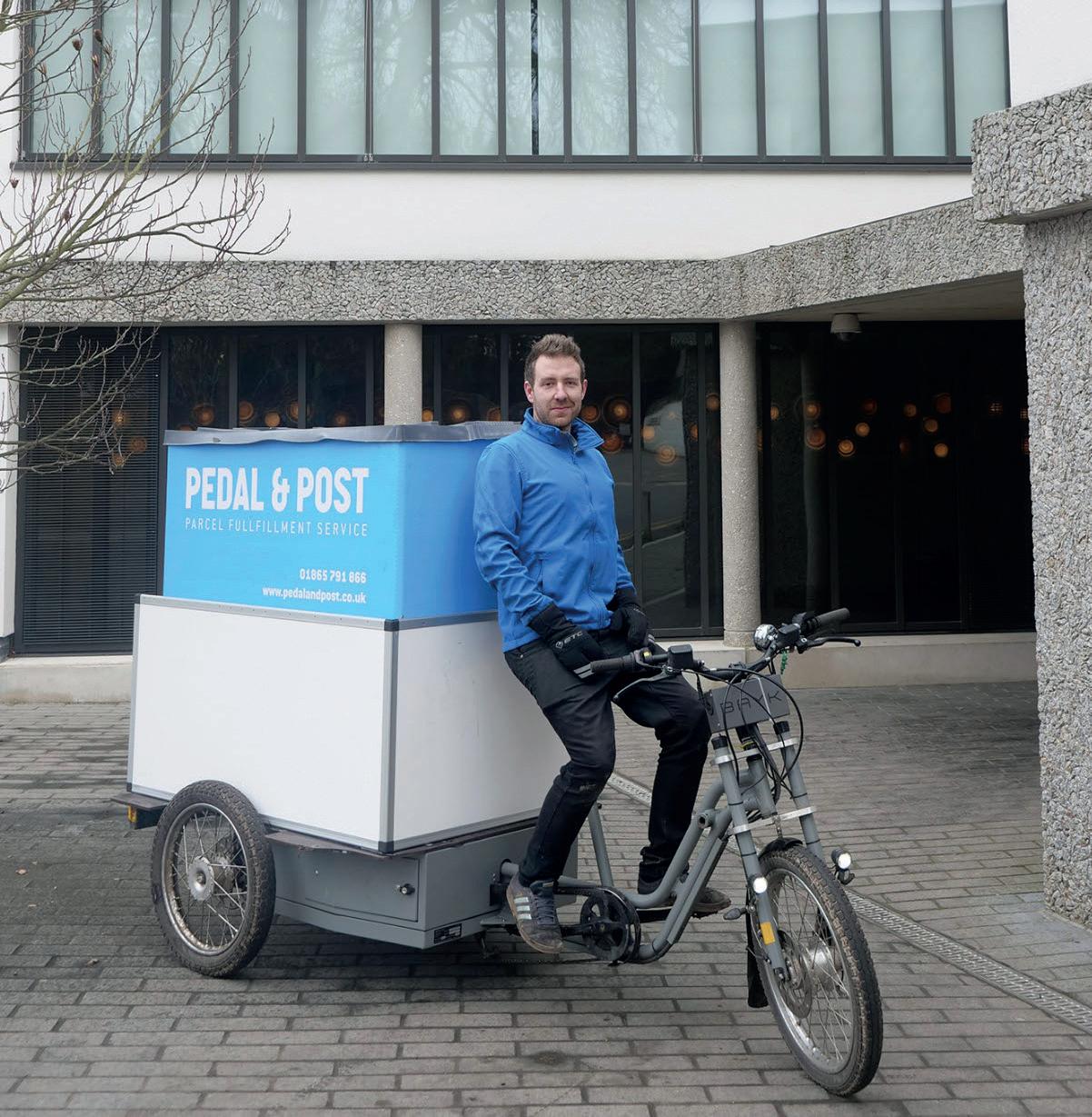
3 minute read
BRITISH ENGINEERING SETS THE STANDARD FOR GREEN TRANSPORT INNOVATION
Oxfordshire companies have been making headlines for their success in innovative green transport engineering.
Oxford-based technology company Helixx is launching a range of four mini commercial electric vehicles able to be deployed into emerging markets within a few months.
The UK-engineered vehicles are designed to be built anywhere in the world in licensed Helixx Mobility Hubs and then o ered to commercial users on a subscription bases from $0.25 per hour.
These hubs will help to minimise carbon emissions while boosting local enterprise which can make, sell and support the vehicles across their lifecycle.
This hub-based manufacturing model is a similar concept to Arrival, founded in the Bicester and listed on the Nasdaq stock exchange in 2021, which is developing an electric van and an electric bus, with plans to build a car.
Its mission is to build its electric vehicles in its new concept of micro factories around the world, making them closer to their markets.
Steve Pegg, Helixx CEO and co-founder: “Helixx was born to meet the challenge of transforming the quality and standard of mobility for citizens in heavily congested cities. The vehicles o ered by Helixx are the key to replacing the heavily polluting combustion-powered vehicles relied upon in developing nations today.”
The Helixx range is designed by Jowyn Wong and Jakub Jodlowski, whose portfolio includes hypercars for manufacturers such as Apollo and DeTomaso.
Steve added: “For the past four years, we have researched the market to ensure the creation of sustainable zeroemission vehicles that meet the demands and needs of the world’s developing economies.
“But arguably more importantly, we tasked ourselves to find a solution to how such vehicles could be deployed wherever they are needed in the world with maximum speed and energy e ciency and minimum cost and complexity.”
Helixx will manage the entire onboarding process for hub partners and orchestrate all raw materials and components and production processes through a nextgeneration Industry 5.0 digital platform that prioritises local sourcing and supply chain flexibility for resilience and full traceability of environmental impact.
Following successful testing of the UK concept hub in partnership with Siemens, Helixx will establish further pilot hubs in the UK and Singapore. The company is in discussion with customers in the Asia Pacific region, with India, MENA, and South America to follow.
Government funding also powers EAV and Lightricity
Alongside the Helixx announcement, the government has announced nine innovative UK freight projects have been awarded a share of £1.2 million in government funding, and two of them are based in Oxfordshire.
The winners include Upper Heyfordbased Electric Assisted Vehicles (EAV), which has secured £150,000 to help its ongoing development, partnering with FexEx, of a four-wheel, electrically assisted lightweight delivery vehicle to help reduce road emissions. Also securing funding is Lightricity Ltd, based in Oxford which has won £119,000 to help it deploy patented technology that harnesses energy from indoor and low-level light sources to power battery-free tracking devices. This will help companies realise the benefits of tracking devices without the cost challenges of battery change and sustainability impacts.
Roads Minister Richard Holden said: “The Freight Innovation Fund gives innovators the opportunity to test their ideas and help our freight industry become greener and more e cient – unlocking better connectivity and boosting growth across the country.”
The Freight Innovation Fund aims to accelerate the adoption of existing freight technologies within the freight sector and develop a future pipeline in line with the freight industry’s real-world needs. It is a three-year £7 million programme.
Last year the government published the Future of Freight plan, the first-ever crossgovernment, cross-modal plan for the UK freight transport sector.
Nicola Yates OBE, CEO at Connected Places Catapult, said: “Working with innovators and industry partners through our accelerator programme allows us to develop a pipeline of technology and new ideas that promise to help tackle the freight sector’s emerging needs, ensuring that resilience, e ciency and carbon reduction are core to the sector’s future.”
Pedal and Post, an Oxford-based low emissions courier company, has launched a share o er on crowdfunding platform Ethex.
The campaign hopes to raise £500,000, which would be used to expand the cargo bike delivery service in Oxford and launch in Reading next year.
According to research from Just Economics, switching from diesel vans to cargo bikes for the first and last mile of deliveries would save the NHS and other government services more than £4 billion by reducing the costs of congestion and air pollution. In Oxford alone, this would work out at a saving of £14 million.
On top of that, research from the Department for Transport revealed that 33 per cent of all urban deliveries could be done by cargo bikes or e-cargo bikes.
Chris Benton, CEO and founder of Pedal and Post, said: “Cargo bikes can deliver more parcels per hour than the average van, and produce 92 per cent less greenhouse gas emissions per delivery.”

Pedal and Post, founded almost 10 years ago, currently delivers 1,000 parcels a day across the city, employing 23 people.
In the coming five years, it is aiming to increase its revenues to £5.5 million, create 140 jobs, increase the number of parcels delivered to 8,000 a day and save 400 tonnes of CO2 emissions.
Pedal and Post is already working with established delivery companies such as DPD, Yodel and Riverford to handle their smaller packages, as well as more traditional Oxford partners such as Blackwell’s bookshops and Wolfson College, part of the University.









